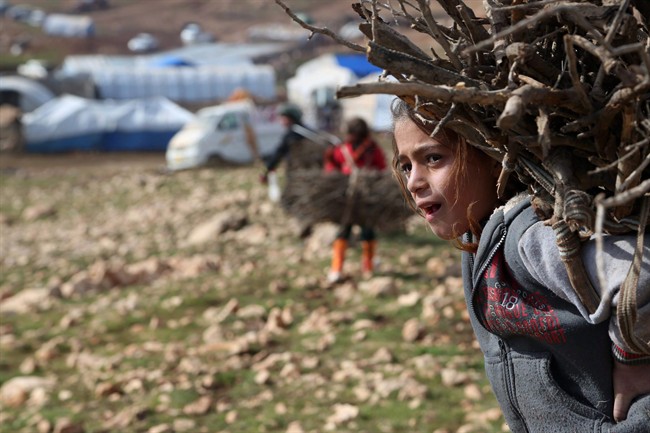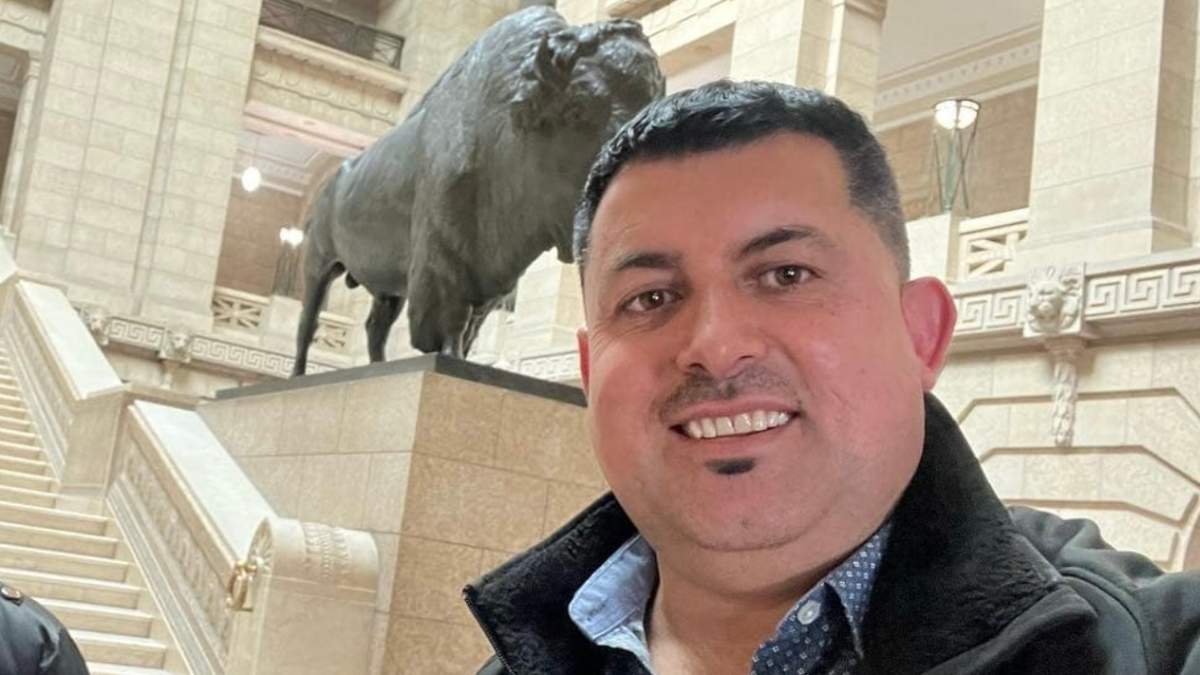The head of a Manitoba non-profit organization that helps Yazidi women and girls who escaped ISIS has been arrested for sexual assault.

Hadji Hesso, executive director of the Yazidi Association of Manitoba, was charged on Oct. 4, the Winnipeg Police Service told Global News.
He appeared in the Court of King’s Bench in Winnipeg for a bail hearing on Monday. A judge declined his request for bail.
Hesso was arrested following a complaint by a woman who escaped the ISIS genocide of Yazidis in northern Iraq and resettled in Winnipeg.
“I was really scared,” she told Global News, which is not identifying her because she is an alleged victim of a sexual crime.
The alleged sexual assaults occurred repeatedly at the association’s premises in July and August, according to the charges filed in court.
Another director of the association, who asked not to be identified by name, confirmed that Hesso remained the non-profit’s executive director.
“We’re not taking any actions until it’s been proven that either he did this or he didn’t,” she said. “Right now, it’s accusations, and there hasn’t been any proof.”
“So we’re waiting.”

The Ethnocultural Council of Manitoba, where Hesso is listed as a board member, did not respond to questions. Nor did Hesso’s lawyer.

Get breaking National news
Although Hesso was initially released following his arrest, he allegedly failed to comply with a condition that required him not to communicate with the complainant.
He was then arrested again on Oct. 17.
According to an online profile, Hesso is originally from Iraq and spent a decade in a refugee camp in Syria, until a church group brought his family to Manitoba.
Hesso worked for Winnipeg Transit Plus, which provides door-to-door transportation for those unable to use the transit system due to a physical disability.
The City of Winnipeg said he was a contract driver but “we can advise that the individual is not providing services to Winnipeg Transit Plus at this time.”
Hesso is also a key figure in his Winnipeg-based non-profit, set up to assist members of Iraq’s Yazidi religious minority, which ISIS attempted to wipe out.

Beginning in 2014, ISIS committed one of the worst crimes against humanity of recent times. After surrounding Yazidi villages scattered around Mount Sinjar in northern Iraq, ISIS fighters gave residents an ultimatum: convert or die.
It then executed thousands of men and kidnapped women and girls as slaves, while boys were taken to ISIS camps and turned into child fighters.
Canada formally declared that ISIS was committing genocide against Yazidis in 2016, and in 2017, resettled 1,200 survivors, including women and girls.
The Yazidi Association of Manitoba was formed in 2017, “to advocate, represent and absorb refugees of the Yazidi minority in Canada,” its Facebook page says.
The group’s advocacy has focused partly on women and girls, many of whom suffered gender-based sexual violence under the so-called Islamic State.

During an appearance at the Parliamentary standing committee on immigration in 2017, Hesso urged the government to “resettle vulnerable Yazidi women and girls here in Canada.”
“Females aged 12 and up have been used as servants, sold to many different people, and forced to watch videos of ISIS killing Yazidi men on a daily basis,” he testified.
“Many of the women and girls who have arrived in Canada have been going through a difficult time. It’s severe, and it varies from person to person.”
He said he worked with settlement agencies in Winnipeg to “provide socializing for those who are isolated, as well as some transportation services and interpretation.”
The Association’s events attracted both Liberal and Conservative MPs, photos on social media show. Hesso and his group were also mentioned in the Manitoba legislature.
“Being a refugee is devastating,” he was quoted as saying in an online profile. “It is a situation you never want to experience. When you have to flee your country, you lose your identity.
“And when you are accepted in another country, you are starting from zero. It is hard getting an education, a job, raising a family in a new country and culture when your mind is still in the country and culture you came from.”
The president of the Yazidi Association of Manitoba declined to comment.
- Canadian immigration officers investigating hundreds identified by extortion task force
- Ottawa expects Ukrainian emergency visa holders to return after war ends
- China drops visa requirement for Canadian tourists, business visitors
- As new EV rebate program starts, car dealers still seek past reimbursements









Comments
Want to discuss? Please read our Commenting Policy first.